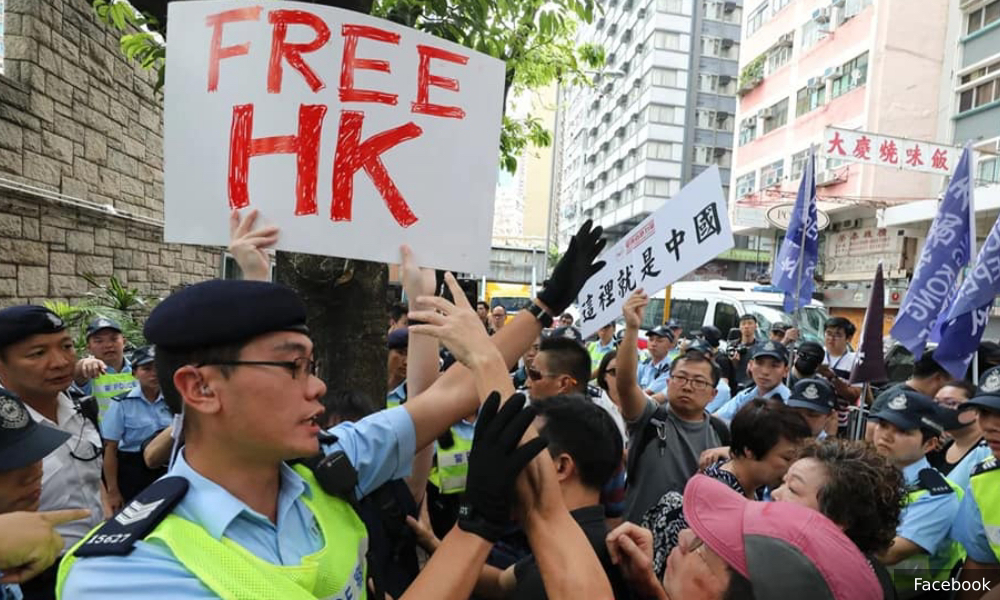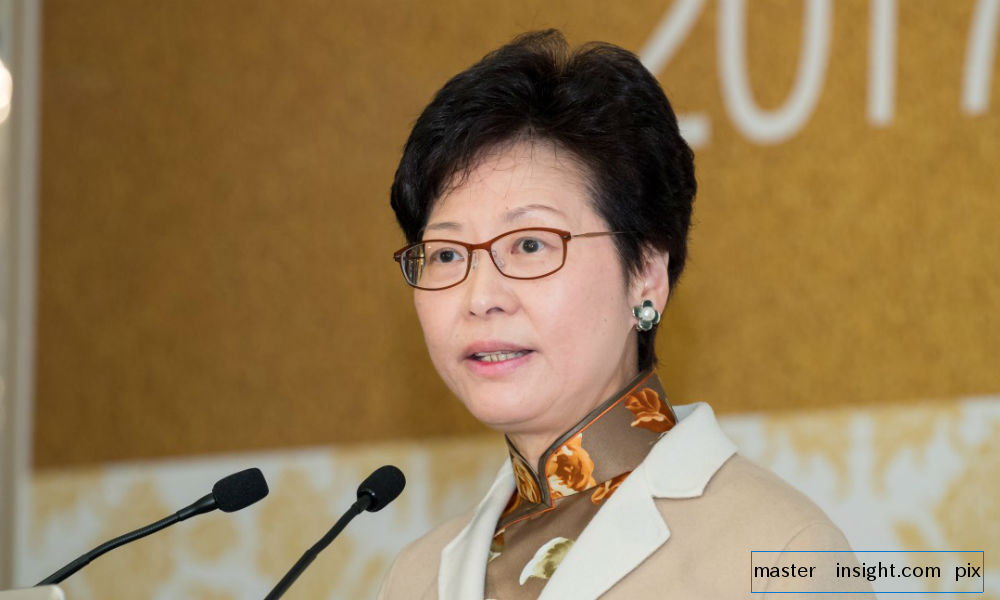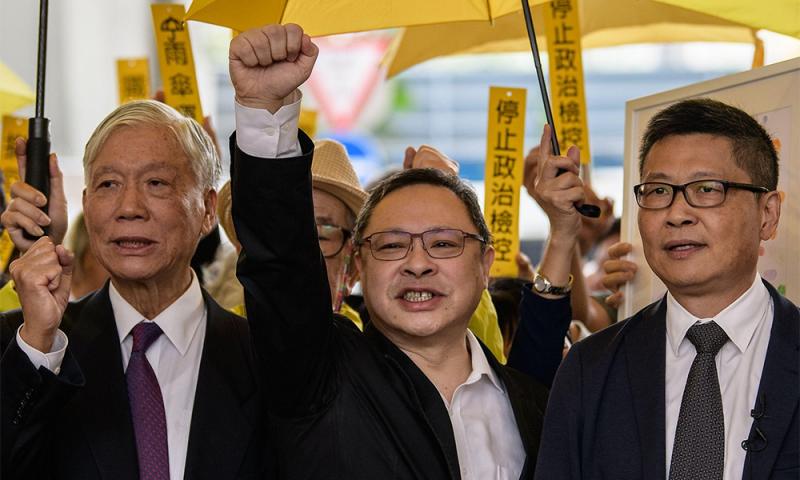Hong Kong 'Occupy' leaders jailed for 2014 democracy protests
A Hong Kong court jailed three leaders of the 2014 pro-democracy 'Occupy' movement on Wednesday amid heightened concerns over the decline of freedoms in the China-ruled city, nearly five years after activists took to the streets in mass protests.
The sentencing followed a near month-long trial that was closely watched as China’s Communist Party leaders have put Hong Kong’s autonomy under increasing strain, stoking concern among foreign governments, rights groups and business people.
Law professor Benny Tai, 54, and retired sociologist Chan Kin-Man, 60, were each jailed for 16 months for conspiracy to commit public nuisance, tied to the protests that paralyzed parts of the Asia financial centre for 79 days in late 2014, and became known as the Umbrella Movement.
All three remained calm during the sentencing.
“Whatever will be the decision of the court, I will just face it peacefully,” Tai told supporters ahead of his sentencing.
Retired pastor Chu Yiu-Ming, 75, received a suspended sentence, as the judge took into account his age and public service.

Several hundred supporters, many wearing yellow bands and holding bright yellow umbrellas, had gathered outside the West Kowloon Law Courts. Once the sentences were announced, some sobbed, while others chanted: “I wasn’t incited by the Occupy leaders.”
The public nuisance trial is considered the most significant legal manoeuvre by authorities to punish those involved in the 2014 Occupy demonstrations, which pushed for genuine, full democracy in Hong Kong.
The demonstrations were the largest and most protracted mass movement in recent decades in the global financial hub, and one of the boldest populist challenges to China’s leaders since the pro-democracy protests in and around Beijing’s Tiananmen Square in 1989.
Organisers estimated a million people had participated in the protests over nearly three months.
Since the city returned to Chinese rule in 1997, critics say Beijing has reneged on its commitment to maintain Hong Kong’s high degree of autonomy and freedoms under a so-called 'one country, two systems' arrangement.
Extradition laws
Authorities have clamped down on opposition forces, disqualifying democratic lawmakers from the legislature, jailing activists and banning a pro-independence political party.

Prior to the sentencing, rival political groups outside the court had taunted each other, with pro-democracy activists calling for Hong Kong leader Carrie Lam (above) to step down, while Beijing loyalists chanted: “Go away. Go occupy London.”
Ahead of the court’s ruling, the Occupy leaders urged supporters to take to the streets on Sunday to protest against proposed extradition laws that would allow people to be sent from Hong Kong to mainland China for trial.
Critics fear the laws, which are expected to be passed later this year, could further erode the city’s legal protections.
Tai, Chan and Chu were each found guilty of at least one public nuisance charge earlier this month over their roles in planning and mobilizing supporters during the protest.
Each charge carried a possible jail term of 7 years.
Six other defendants – pro-democracy legislators Tanya Chan and Shiu Ka-Chun, two former student leaders Eason Chung and Tommy Cheung, activist Raphael Wong, and veteran democrat Lee Wing-Tat – were each found guilty of at least one public nuisance charge earlier this month.
Shiu was also jailed on a public nuisance charge, but Chung, Cheung and Lee avoided jail time and walked free from the dock, where they were embraced by supporters, some of whom shouted. “I want universal suffrage”.
Chan’s sentence was adjourned until June 10 due to a health condition.
All nine had pleaded not guilty and argued the Umbrella Movement was intended as peaceful, non-violent civil disobedience, serving no motive other than to benefit society and make positive democratic progress.
A court found them guilty of public nuisance charges on April 9, with the judge ruling that while civil disobedience is allowed in Hong Kong, it couldn’t excuse an illegal act.
- Reuters
RM12.50 / month
- Unlimited access to award-winning journalism
- Comment and share your opinions on all our articles
- Gift interesting stories to your friends
- Tax deductable

 Reuters
Reuters